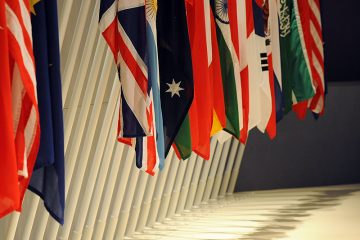
On the Margins: Meetings to Watch at the Hamburg G20
Summits are not just — or even mostly — about what happens in the formal leaders’ meetings. What happens on the sidelines often has the largest effect on steering the course of international politics. This is the first year that the G20 summit could end up as a failure, advancing little in the way of substantive progress on the global governance agenda, chiefly owing to the group now having to contend with Donald Trump taking America’s seat at the summit table. Trump’s ‘America First’ agenda — typified by its economic protectionism and rejection of the established multilateral order — is entirely antithetical to the G20’s previous commitments to reject protectionism and safeguard the liberal, rules-based, multilateral governance order. This year’s G20 …

The 2015 EU “Refugee Crisis” : Analysing the IOM’s Information Campaign in Senegal
In 2015, Europe witnessed a significant increase in the influx of migrants, commonly referred to as the “2015 EU refugee crisis.” This article explores how this “crisis” transformed the migration-development agendas. With a specific focus on IOM’s information campaign in Senegal, I argue that the EU’s post-crisis migration policy has been characterised by the securitisation and externalisation of borders, reinforcing a pre-existing development agenda that primarily serves the political interests of EU states. What makes Senegal’s information campaign noteworthy is its use of affective, emotional, and relatable content to discourage Senegalese people from embarking on “irregular” journeys, rather than resorting to explicit violence such as highly militarised border controls. Although 2015 may sound like a long time ago, this type …
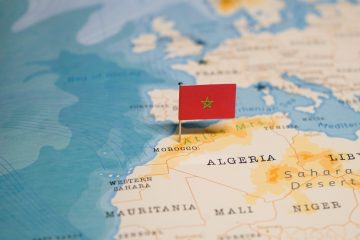
The Moroccan moment: Global engagement and domestic reform
The Moroccan moment: Global engagement and domestic reform Over the past decade, Morocco has revamped its international engagement, aligning it with its economic growth and domestic reforms. Morocco is committed to consolidating its status as a multipolar actor on the international stage. Moving beyond aid dependency, Morocco is firmly committed to fostering equitable partnerships with the global community. The nation’s strong commitment to expanding its trade partnerships and engaging with a wide range of stakeholders clearly reflects its enthusiastic pursuit of multilateral prominence on the global stage. The hosting the International Monetary Fund (IMF) – World Bank 2023 annual meeting in Marrakech in October was a keystone in this transformation. This article summarises a comprehensive report focusing on Morocco’s interactions …
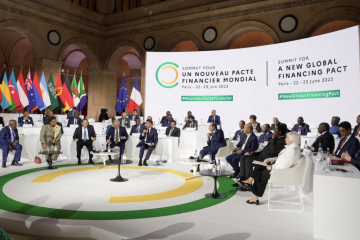
The Paris Climate Summit: A Milestone for the Global South?
International summits are vital to promoting global agreement and laying the groundwork for future international cooperation. The Summit for a New Global Financial Pact took place in Paris, co-hosted by France’s President Emmanuel Macron and Barbados’ Prime Minister Mia Mottley. The Summit, organised with the aim of promoting global unity for international financial architecture form, set out to achieve four main goals focusing on fiscal sustainability and climate change in low-income countries. Amid the worldwide increase in extreme poverty and climate disasters, these conferences provide a platform for building coalitions to resolve urgent humanitarian issues. However, there has been a marked decline in international cooperation and the success of these events. In 2022, the United Nations Climate Change Conference COP27 …
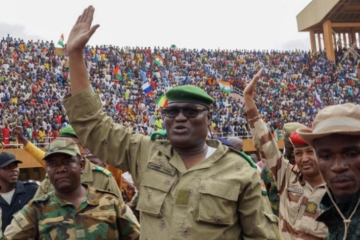
Breaking the Domino Effect: How the West Should Respond to Niger’s Coup
On 26 July, Niger’s presidential guard launched a coup against President Mohamed Bazoum, announcing their seizure of power in a televised broadcast. As the dust of the coup begins to settle, Niger — and the international community — stand at a crossroads. The military junta’s success in maintaining power is far from guaranteed and has been widely condemned. Several states and supranational organisations, including the US, France, the EU, the Economic Community of West African States (ECOWAS), and the African Union (AU) have threatened the military junta with sanctions if it does not reinstate President Bazoum, and have even considered military intervention. However, the Sahel’s track record of successful coups suggests that Niger is likely to see further democratic backsliding, …

A New Battleground: Russia’s “Grey Zone” Warfare in the Sahel
As Russia’s invasion of Ukraine enters its second year, the Wagner Group has been expanding its Kremlin-backed footprint across the globe. In particular, the mercenary network has been deploying forces in Africa’s Sahel region, revealing how Moscow is strategically blurring the line between “anti-terror” operations, security-for-resources tradeoffs, and covert political influence. In recent months, U.S. officials have accused Wagner of exploiting resources in the Central African Republic (CAR), Mali, Sudan, and beyond in an effort to fund Putin’s “war machine” in Ukraine — a charge Moscow dismissed as “anti-Russian rage”. Beyond the Ukraine crisis, however, the group’s activities and atrocities are painting a dire picture of Russia’s long-term strategy to destabilise Western relationships and gain a foothold in the African …
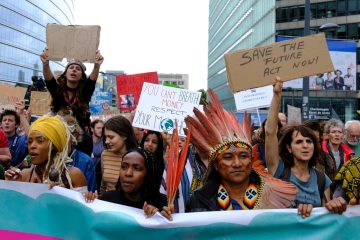
From periphery to core: COP27 and the era of loss and damage
“Already at 1.1-degrees of warming, we are living in an era of unmanageable loss and damage. We on the frontlines are paying the price for decades of wholly insufficient action by those most responsible for the dangerous state of our climate.” (AOSIS’ opening statement at COP27) At the outset of the 27th Conference of the Parties (COP) to the United Nations Framework Convention on Climate Change (UNFCCC), the Alliance of Small Island States (AOSIS) made clear what they wanted to get out of this gathering under the hot November sun of Sharm el-Sheikh. They would not leave Egypt without an acceptable agreement that would reflect their decades long struggle for financial support on loss and damage. And, against all odds, …
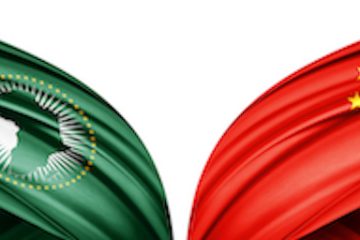
Bridging State Responsibility and Opportunities as African Countries Join in the Digital Silk Road
In 2015 China launched the Digital Silk Road (DSR hereafter). The DSR is an essential part of the One Belt, One Road (BRI) strategy with significant domestic and foreign policy objectives. China has made enormous investments that have allowed it to achieve rapid technological advancement and economic growth. As of 2021, Chinese firms were three of the world’s largest technology companies by revenue. According to the World Intellectual Property Organisation (WIPO), in 2020 China reported 1.5 million patent applications, 2.5 times more than the second leading country, the United States. The DSR is part of China’s plan to spread its technical and proprietary knowledge by building telecommunications, data, and financial infrastructure in countries participating in the BRI. The Nigerian digital …
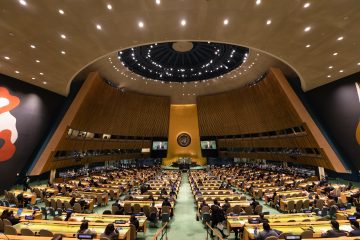
Citizens worldwide want a stronger and more democratic UN: Findings from an international survey by Oxford, LSE, and Griffith researchers
This week, political leaders from countries all over the world are gathering for their annual meeting at the United Nations (UN) in New York. Since its creation and to this day, there have been discussions about reforming the UN. Soon after the UN was founded in 1945, public figures like Albert Einstein called for a much more powerful and democratic UN. Today, leaders such as Ukrainian President Zelensky urge fundamental reforms to strengthen the UN, while NGOs like Democracy Without Borders campaign for making the UN more democratic and representative of citizens. In an international survey in six countries worldwide (Argentina, China, India, Russia, Spain, and the United States), Mathias Koenig-Archibugi (London School of Economics and Political Science), Luis Cabrera …








